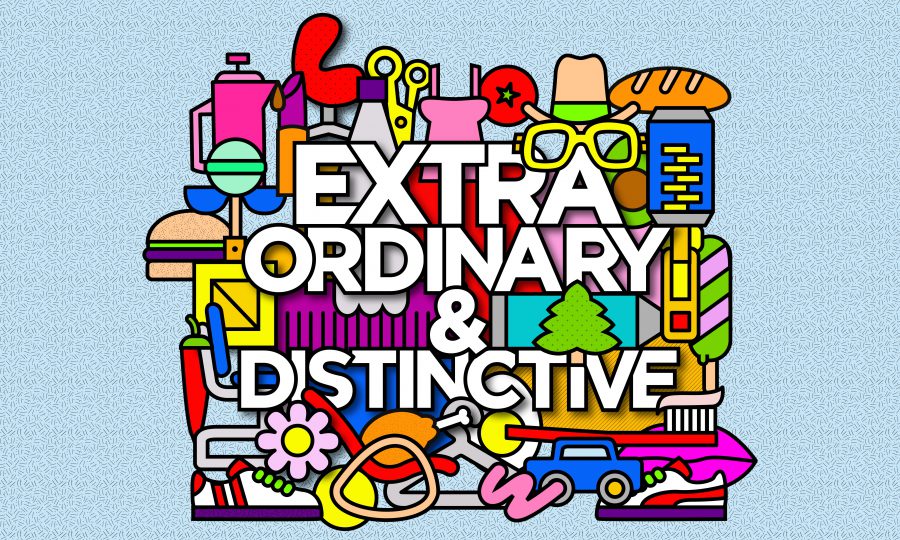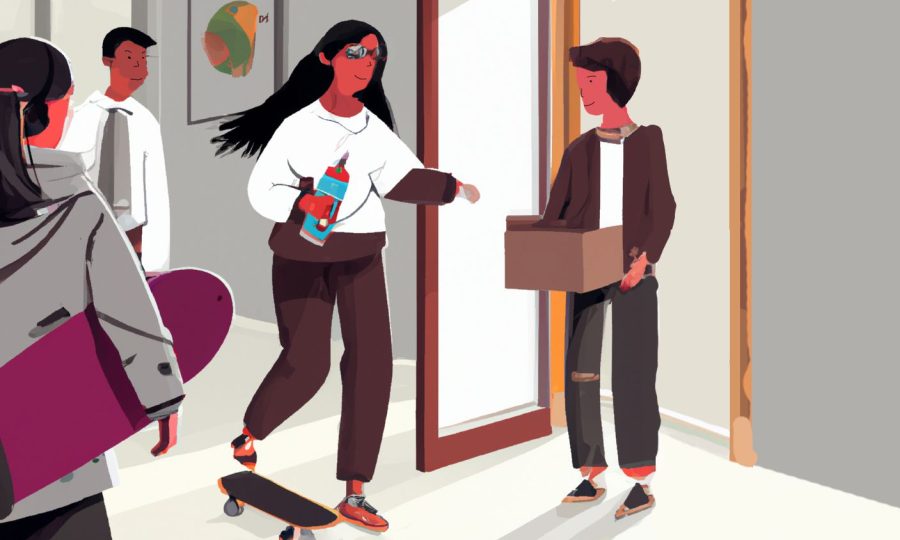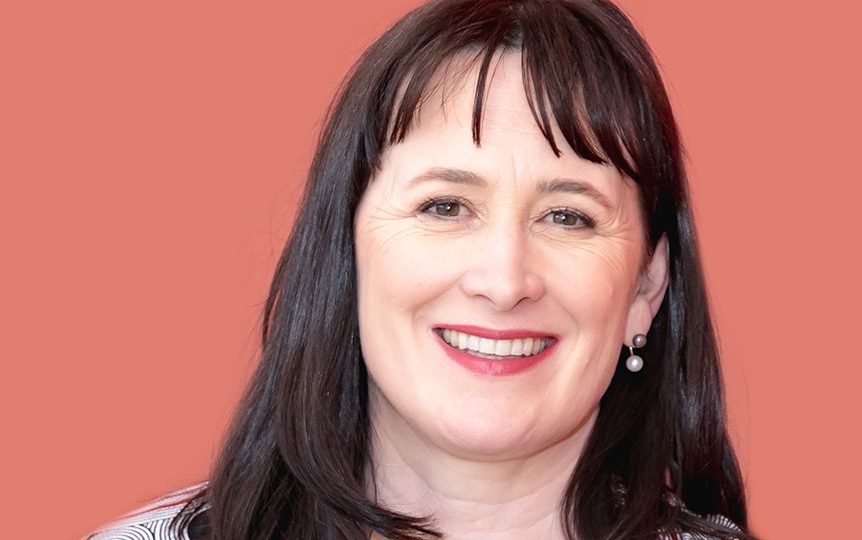Life lived in limbo
Violently displaced from their homes to a marginalized existence in vast refugee camps, Rohingya people are harnessing the power of entrepreneurship for survival and identity.
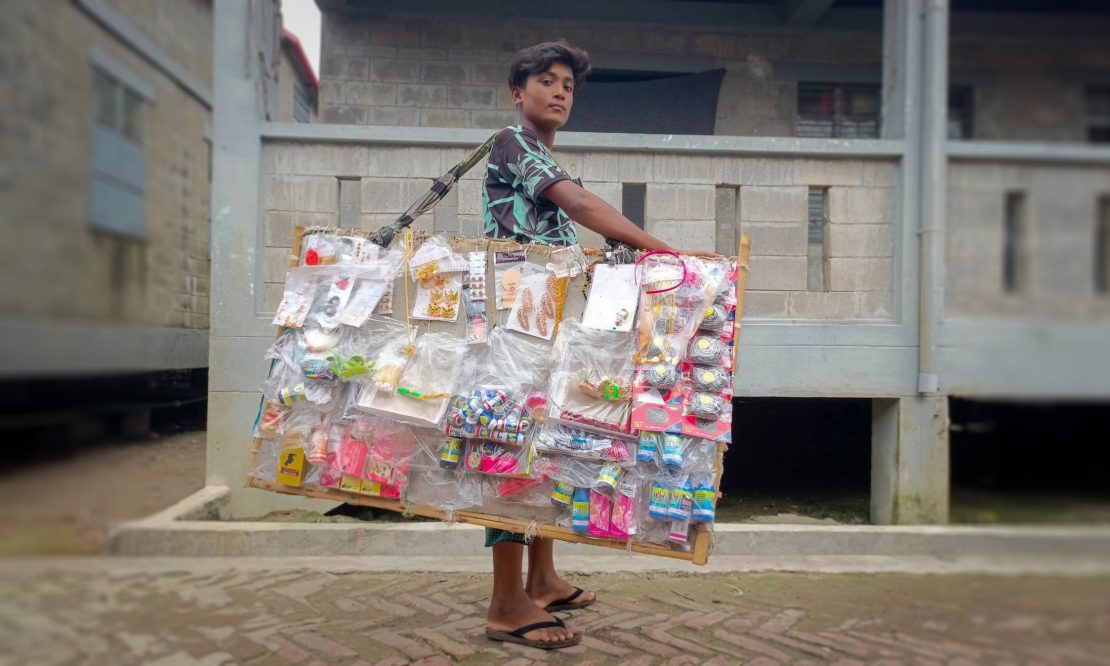
In August 2017, more than a million Rohingya people fled across the border from Myanmar (formerly Burma) to Bangladesh. In their home country, they had endured decades of discrimination and repression, crimes against humanity and possible genocide. Most were placed in Kutupalong – now the largest refugee camp in the world, with more than a million inhabitants. Every day, they face a constant struggle just to exist, in an unforgiving environment over which they have almost no control. And entrepreneurship, as new research is finding, plays a key role.
“Through understanding what is happening at this refugee camp, and how people live there, we want to start a conversation that focuses on marginalized people: their communities, economic activities, how they organize for a better and more dignified life,” says SM Musa (PhD, 2024). “There are millions of people living in slums or slum-like marginalized contexts around the globe. They organize their lives in ways we cannot always explain by using theory that comes from a very polished world.”
Musa was born in a small village in Gazipur, Bangladesh, and moved to Dhaka for his Bachelor of Business Administration (BBA) at North South University. In his first job post-university, he became fascinated with strategy, which led him to RSM. Initially, his PhD was around big data, the Internet of Things and cutting-edge technology in the shipbuilding industry. But increasingly, Musa found himself drawn to the dynamics of small entrepreneurship which he had witnessed first-hand growing up.
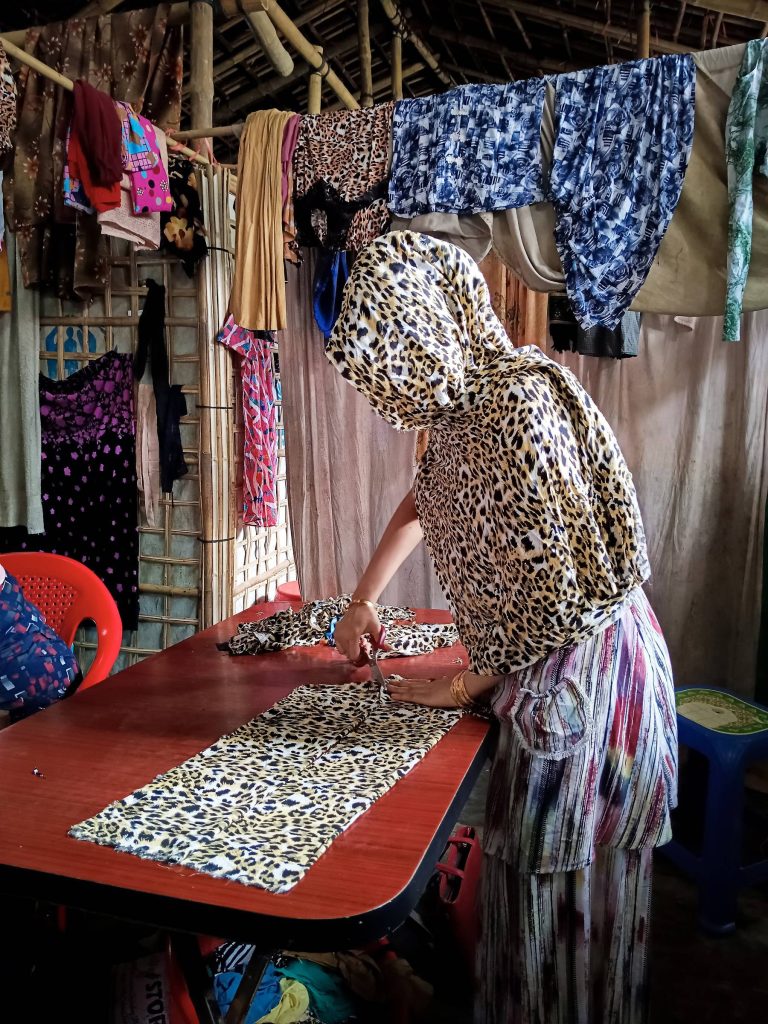
Photo by Omar Salma, 2023.
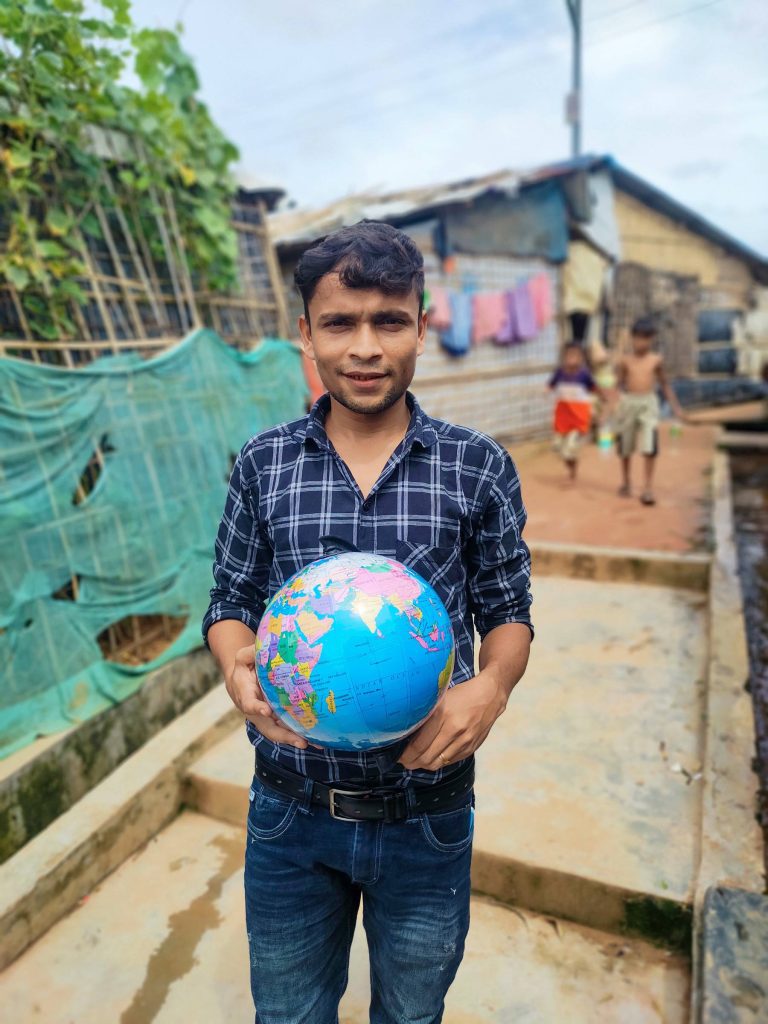
Photo by Md Iddris, 2022.
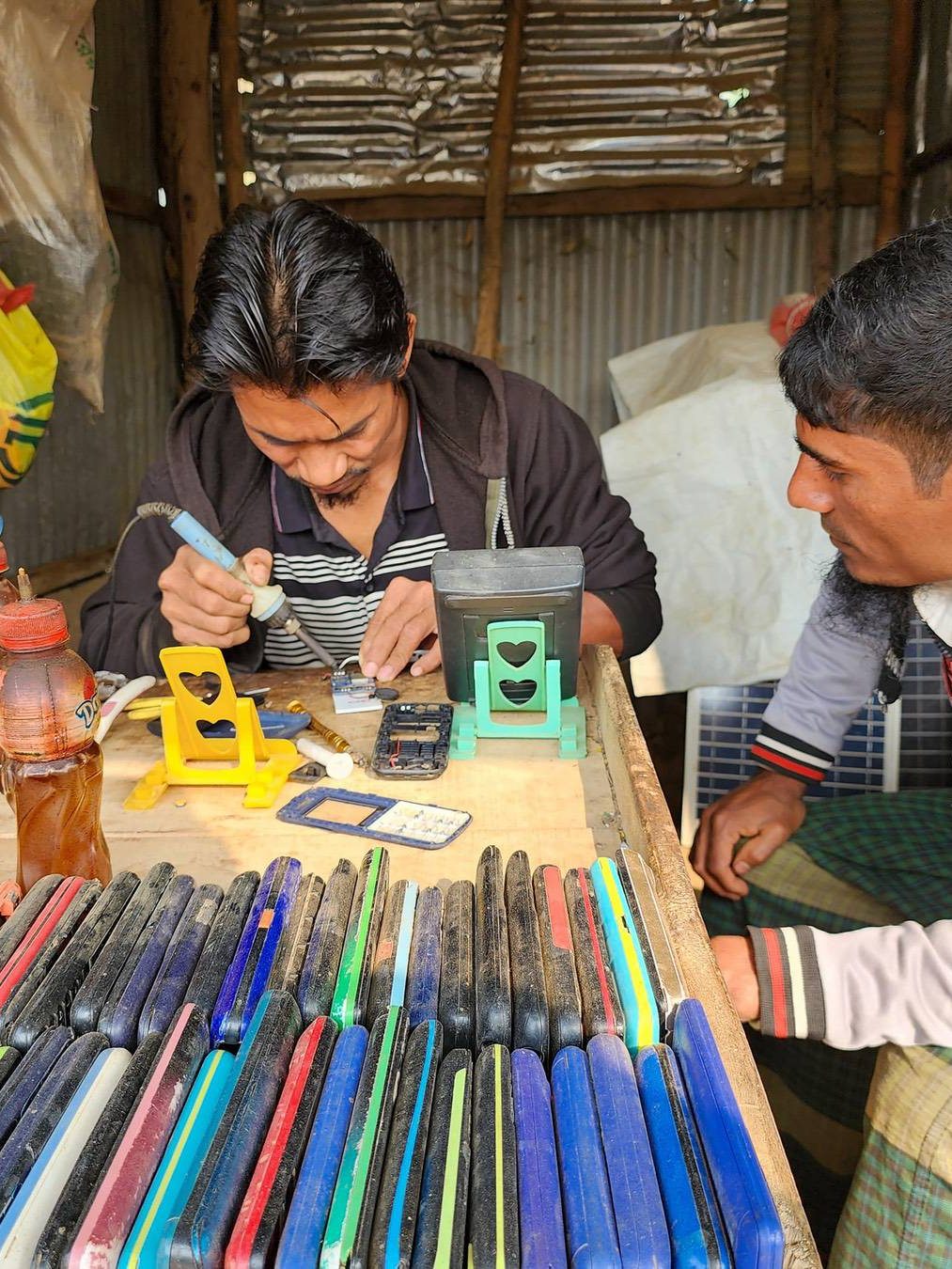
Photo by Ro Arfat Khan, 2024.
“I saw how this entrepreneurship can have a big impact – not just on a family, but also in a community,” he says. “I didn’t find big tech particularly interesting. What interested me was problems in society and how they can be dealt with.” When the Rohingya refugee crisis hit, he knew he wanted to change his PhD subject. It was a difficult call – RSM is a business school, after all – but his two supervisors, Professor Pursey Heugens and Professor Luca Berchicci, encouraged him. “They said to just go to the camps and observe.”
Musa lived just outside Kutupalong for ten months, and inside the camp for four months, in a house owned by a Bangladeshi. This access allowed him to get close to the daily struggle of camp life. Two themes for his PhD emerged: firstly, how people organize their lives when they are uprooted from their homeland; and secondly, the role that entrepreneurship plays.
“It was interesting for me to understand how people organize their socio-economic or cultural life in an extremely marginalized context,” he says. “In Bangladesh, many people are marginalized, as they don’t have good access to the resources necessary to have a good life. But the marginalization of the camps is on a different level.”
He found that many of the camp’s inhabitants were determined to show the world that they were more than just refugees. They built civil organizations, wrote books on their exile and camp life, set up tea houses, organized schools, created art. To describe this phenomenon, he coined the phrase ‘identity bootstrapping’: recreating or rebuilding your identity in a more positive way, enabling you to see yourself more positively than others are seeing you. “Any refugee group struggles with its identity and dignity, because they have no country to call home. They feel their identity has been taken away. They sense that they are treated differently, such as when they interact with aid workers or people from the host community. They feel inferior. So, they try to organize their lives around entrepreneurship, creative activities, or organizing educational activities, to help them feel valued and respected.”
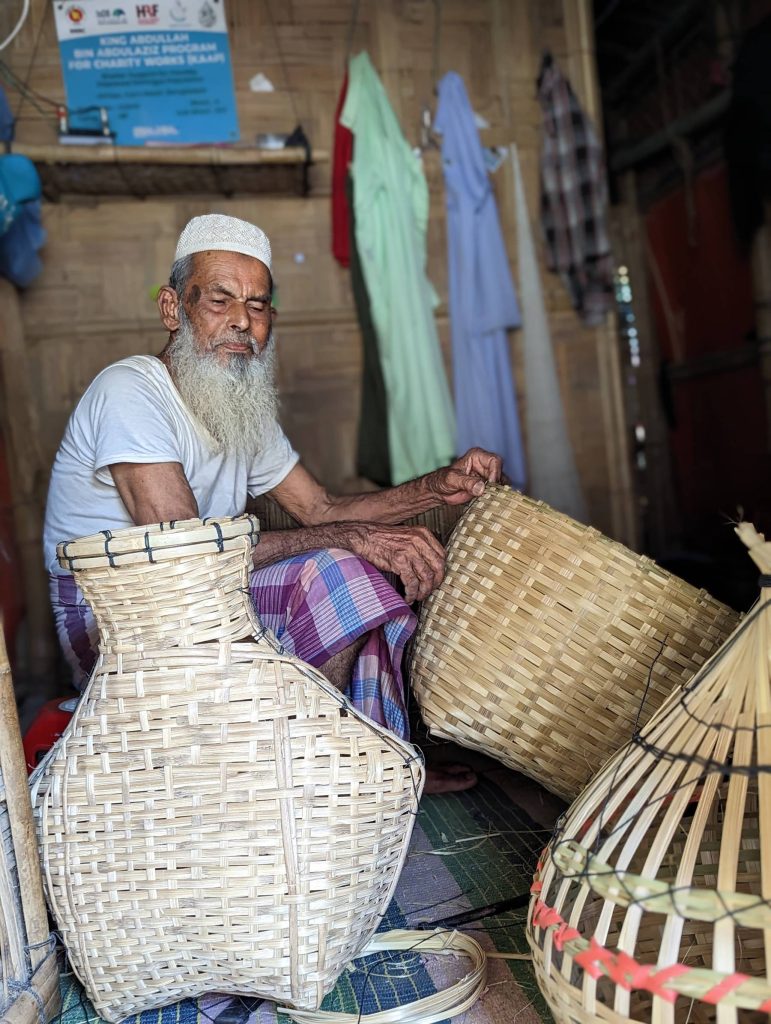
Photo by Ro BM Hairu, 2023.
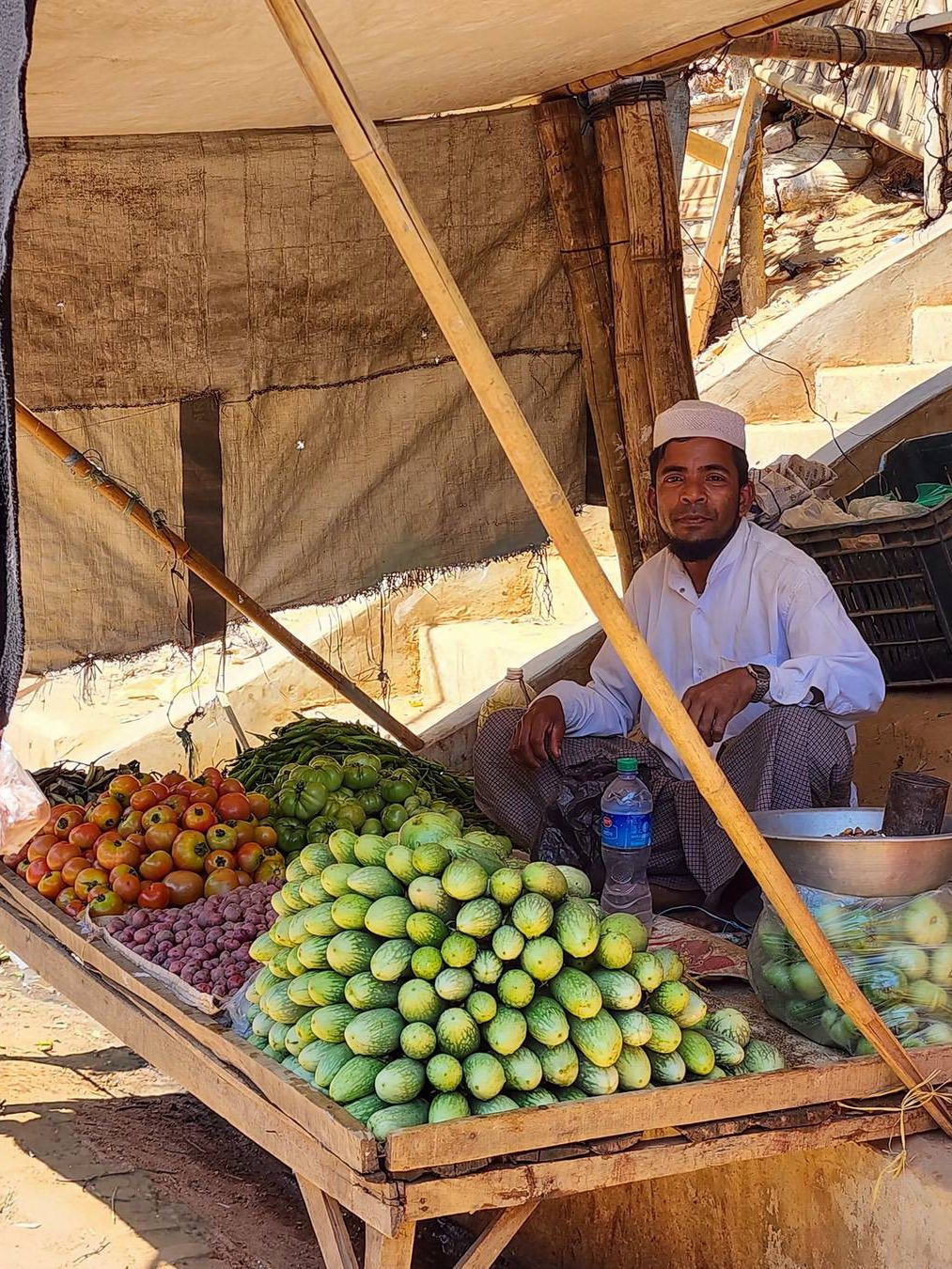
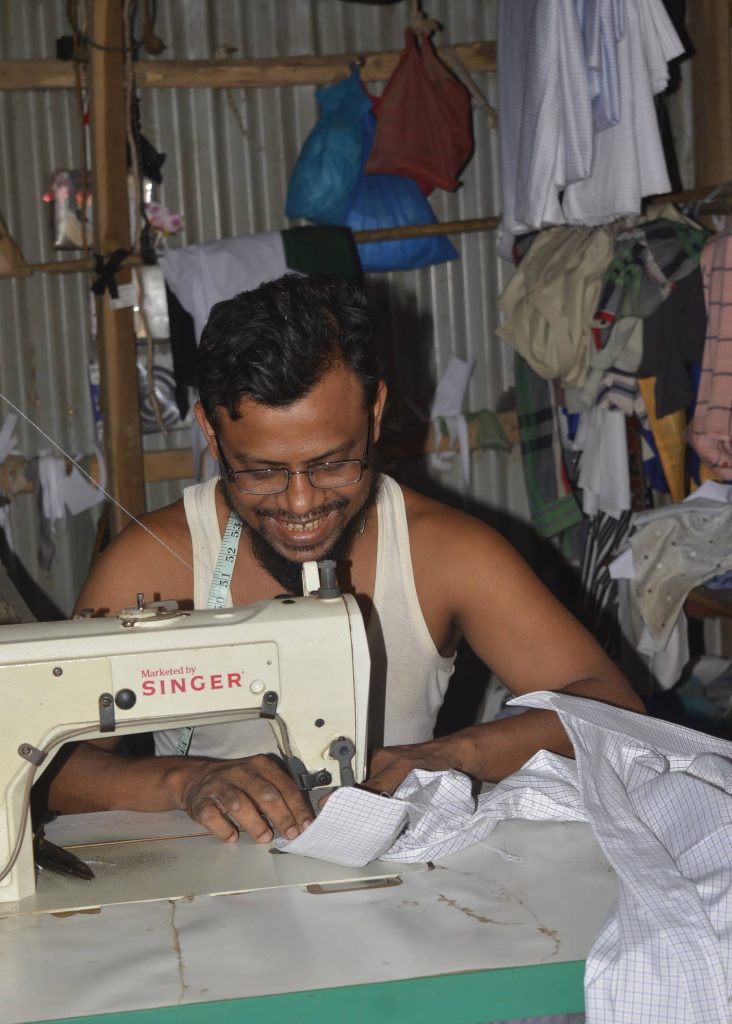
Photo by Md Hossain, 2024.
Previous research on this kind of necessity entrepreneurship – where entrepreneurship is driven by basic human needs – has still not shown whether it has a wider benefit to communities, or is just essential to meet daily requirements, Musa points out. “We wanted to find out whether or not these entrepreneurship activities help refugees have a better life in the camp compared to other forms of earning activity.” Using data from 5,000 families in the camp, he found that entrepreneurship is the second-best economic choice for the camp’s inhabitants, after working for an NGO – and has other advantages, too. “The entrepreneur’s family and social life both benefit. They spend a lot of their earnings on social activities, such as going to social functions and cafés. That connects with the identity piece: they still aspire to have a thriving social status and a more positive identity.”
But entrepreneurship can also be exclusionary, he says. “Entrepreneurship needs space. In places like a refugee camp or even smaller villages or marginalized communities, the bazaar and a small tea shop can be very powerful places where people connect with each other to talk about community improvement or community development. If you are not part of this discussion, you tend to fall behind. Entrepreneurs build a very strong group-like entity. If you are not part of that group, no matter how much resource you have, it is difficult to be part of that inner circle.”
In Kutupalong, all the social discussion happens in the tea shop – but you can’t sit in a tea shop unless you have money to buy tea. Musa has encountered people who don’t go to the tea shop because they can’t afford it and feel ashamed. “So, these super-social places can become spaces of shame. People stay away, and they become more excluded.”
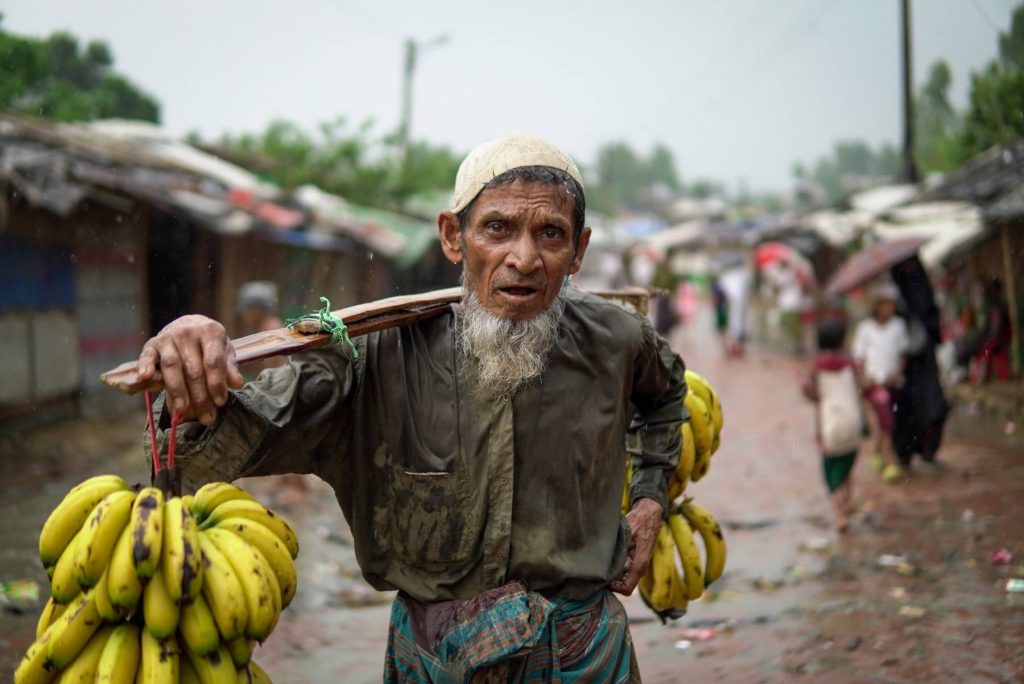
Photo by Yassin Abdumonab, 2024.
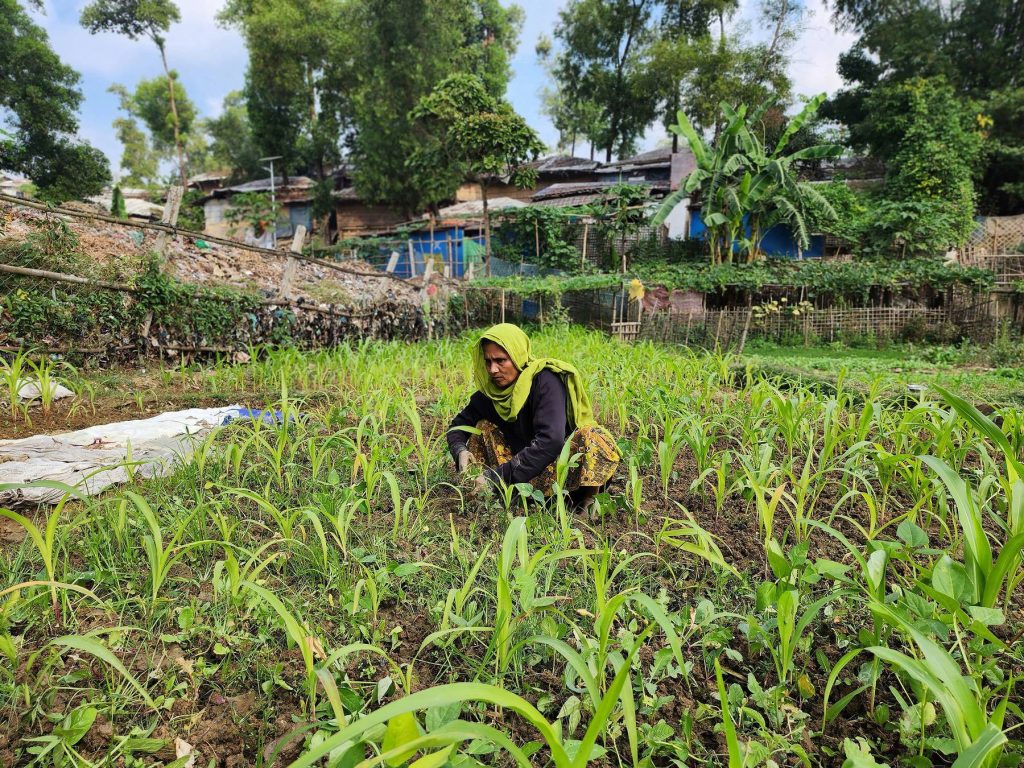
Photo by Ro Arfat Kahn, 2024.
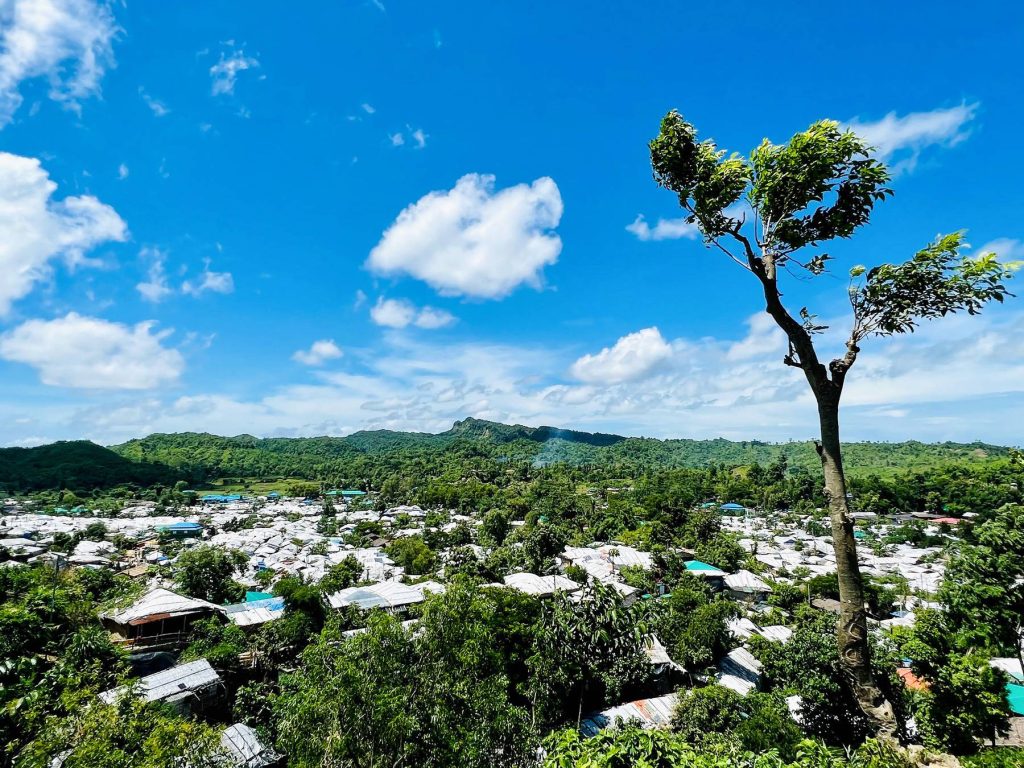
Unchiprang camp, close to the Rohingya border. The camp is a green ecosystem, providing a livelihood for its communities.
Photo by Ro Yassin Abdumonab, 2024.
Musa emphasizes that his research has not yet been published. But its insights thus far could be valuable for policymakers, he says. “For example, in terms of the exclusionary nature of entrepreneurship, what would an effective intervention look like? Removing the boundary is impossible: there is always an in-group and an out-group. But could we expand the boundary and make it more inclusionary?” He is also keen for his project to benefit the camp’s inhabitants directly, and has introduced the Honour Project, which trains Rohingya men and women to be entrepreneurs. “We shouldn’t just go to a place to research and learn. We should also give back to these societies.”
Economists and sociologists, he says, have been trying for years to come up with solutions to areas of economic deprivation – yet little has changed for those living in the margins of society. “But there is always a reason that people can’t move out of those lives. So, we should initiate this discussion in business schools. We have the resource and the opportunity to help make change.” He wants the world to know that in Kutupalong and in marginalized communities everywhere, people are organizing their lives to bring hope for the future. “And they don’t necessarily need financial help. They need recognition and attention. We need to recognize that millions of people could potentially make a dignified life, which is valued by all. We need to make sure they get the opportunity to organize themselves for that.”
Make an impact
The RSM Impact Fund helps students and academics deliver positive change.
